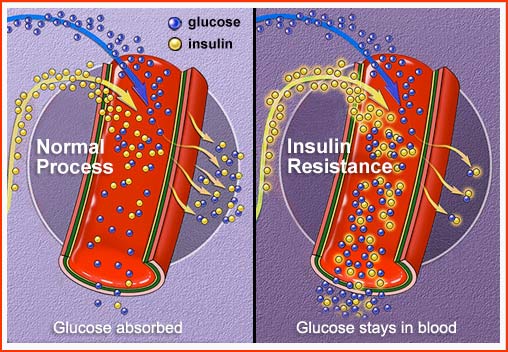
Beth Israel Deaconess Medical Center (BIDMC) announced that fat cells might prevent diabetes, which sounds totally counter-intuitive. But, in the human body, the balance of blood sugar and insulin is partly controlled by the fat cells. Medical News Today says:
To do this crucial job, fat cells need a small portion of the sugars derived from food. Obesity often reduces the dedicated sugar transport molecules on fat cells, blocking the glucose from entering fat cells. As a result, the whole body becomes insulin resistant, and blood sugar rises, leading to diabetes.
The article interprets for online readers how the study demonstrated the importance of glucose to fat cells. The researchers are said to have discovered a “new version” of a gene inside fat cells. Harvard University’s Barbara Kahn, M.D., the senior author of the BIDMC study, indicated that this one gene can make a lab animal either more vulnerable to diabetes, or somehow protect the animal from diabetes.
This builds on Dr. Kahn’s discovery, more than a decade ago, that “fat cells are a master regulator of healthy levels of glucose and insulin in mice and require sugar.” She is quoted as saying:
Two things were surprising — first, that a lone gene could shift the metabolism of the fat cell so dramatically and then, that turning on this master switch selectively in adipose tissue is beneficial to the whole body.
The way the journalist explains it, apparently this newly identified gene “may account for the protective effect of glucose uptake in human fat.” It was already known that the glucose metabolism in fat cells makes a big difference, but now the exact reason seems to be clear.
If fat cells can’t soak up their ration of glucose properly, this can be an early sign that diabetes looms on the horizon. Apparently, the gene senses glucose and causes it to convert into fatty acids. If the glucose level goes up, even more fatty acids are produced, and if this occurs inside the liver, the person winds up with non-alcoholic fatty liver disease.
Fat cells generally need about 10% of the sugars that enter the system. So that definitely does not mean that anyone needs to eat more sugar. The body is perfectly capable of deriving it from healthful foods.
The study’s first author, Mark Herman, M.D., is also quoted:
The general concept of fat as all bad is not true. Obesity is commonly associated with metabolic dysfunction that puts people at higher risk for diabetes, stroke and heart disease, but there is a large percentage of obese people who are metabolically healthy.
At the Kern Lipid Conference this summer, Dr. Kahn delivered a lecture titled, “Novel mechanisms by which adipose tissue regulates systemic insulin sensitivity and risk for diabetes.” Further research in this area could explain why some obese people are not at risk for diabetes, and also lead to a new ability to prevent and treat type 2 diabetes, as well as the other metabolic disorders often associated with obesity. Counter-intuitive or not, the findings will doubtless inspire many more questions.
Your responses and feedback are welcome!
Source: “Discovery Of Protective Gene In Fat Cells May be Therapeutic for Type 2 Diabetes,” Medical News Today, 04/02/12
Image by Stockton.edu.

 FAQs and Media Requests:
FAQs and Media Requests: 












One Response
I loved this page.